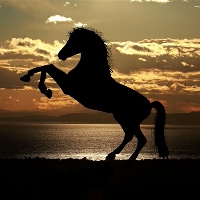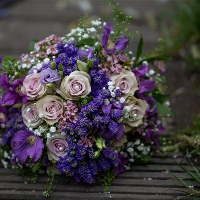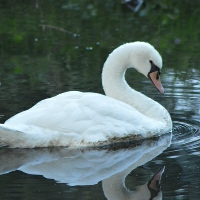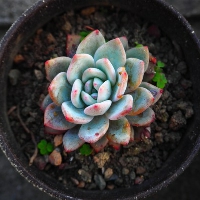What does fourth mean
1. Four means the fourth. For example, "My birthday is on the fourth of December."
2. Fourth is also commonly used in competition ranking, for example: "Daniel was fourth in the race."
3. You can also use it when representing floors, for example: "They take the lift to the fourth floor.". As an adjective, it means "1/4", for example, "Three hours of the watershed.", "The four of his students, or 75%,come from the local area.”
What does forth mean
In fact, there is no connection between them. They are totally different words. "forth" is an adverb that expresses "forward", while "fourth" is an ordinal expression of the number 4 four, which means "fourth". Therefore, they are very different and have no connection.
Usage of forth:
Forth is an adverb, which is used to modify a verb. It means to go forward, to a certain place, to express the deep meaning of leaving and going out. It is an adverb, so it can only be placed behind the verb. Although it is very similar to the number four, there is no relationship between the two.
Let's take a look at its specific usage. The first is the common fixed collocation. One is called and so forth, which is equivalent to an and so on meaning. It means and so on. There are many other meanings.
Usage of fourth:
Four is an ordinal expression of the number 4four, which means the fourth. If you omit the u, it will become the previous forth. This word is very simple in use. For example, if you rank the fourth in the country, you can use someone ranks fourth all over the country. If you use the word in the first place, you can use it directly after the sentence.
How to say the fourth English
Question 1: This is the fourth most. How do you say it in English? The first, second, tenth
But if you don't emphasize quantity or just talk with friends, you can avoid being so rigid
You can use some follow-up words
The first one is.
the second.
Next is can be used in the middle
then.
in addition.
of course.is a good choice.
Question 2: What should I say about "the fourth" in English? the fourth
Two meanings of second
1. second
2. Second
Question 3: How to write the fourth one in English? Fourth [d ì s ì]
[Definition] fourth; fourthly; number four
They thanked the fourth fairy for her gift.
They thanked the fourth fairy for her gift.
The Fourth Regiment deserted in a body.
The fourth regiment deserted.
The fourth aircraft was forced to land alongside a Dutch trawler.
What does fourth mean
The fourth plane made a forced landing next to a Dutch trawler.
A tarsal bone on the outer side of the foot in front of the calcaneus and behind the fourth and fifth metatarsal bones.
A tarsal bone on the outside of the foot, located in front of the calcaneus and behind the fourth and fifth metatarsal bones
That vessel shall be confiscated pursuant to the first paragraph of Article 49 of the Regulation on Vessel Registration.
Question 4: How to say the first and fourth in English? The first and fourth
Question 5: How to translate the fourth
Question 6: How to translate English? Full, equivalent to be filled with
Her eyes were filled with tears
That cup/bottle is full of orange juice
Question 7: How to say the fourth in English
fourth
[Dictionary] fourth; four; fourthly;
[Example sentence] See Chapter 4.
See also Chapter 4.
Bilingual Chinese English Dictionary of Sample Sentences
Question 8: How to say it in English: first, second, third, fourth, until the tenth? First
Second
Third
Fourth
Dan ifth
Sixth
Seventh
Eighth
Ninth
Tenth
Question 9: How to say The fourth
Question 10: How to say the third line and the fourth column in English? There are actually many English words that have the meanings of both lines and columns, such as line and row.
But in English, if you say the line and column together, you use the following
The third row fourth column
Fixed collocation~! Column itself means column, column.
What does fourth mean
Huhu~Haiwang is what you want~
What does fourth mean
Fourth means fourth.
English explanation:
the musical interval between one note and another four notes away from it.
one of four equal parts.
coming next after the third and just before the fifth in position or time or degree or magnitude.
What does fourth mean
in the fourth place.
following the third position; number four in a countable series.
Similar phrases:
The fourth is the Fourth of July, the American Independence Day.
Fourth dimension time, fourth dimension space.
Fourth ventricle.
Fourth nerve.
Fourth of July.
The fourth estate; Level 4.
The fourth finger has no ring finger and ring finger.
Fourth stage.
Fourth of July.
Fourth plan quarter plan.
Similar words:
Fourth, one quarter.
Fourth quarter.
Twenty fourth.
The fourth rate has no value.
Sixty fourth.
One sixth fourth.
Fourth class.
Bilingual example sentence:
1、He was eliminated (from the contest) in the fourth round.
He was eliminated in the fourth round.
2、 The 800m is the fourth event of the afternoon.
The 800m race is the fourth event in the afternoon.
3、 I can dimly remember my fourth birthday.
I vaguely remember my fourth birthday.
4、 She was leading for part of the race but finally finished fourth.
She was in the lead for a time in the race, but finally came fourth.
5、 I can't do the fourth and fifth questions but I've done all the others.
I can't answer questions 4 and 5, but I have answered the rest.
6、 After her fourth child she decided to be/have herself sterilized.
After giving birth to her fourth child, she decided to undergo sterilization.
7、 The book reached its fourth edition.
The book comes out in the fourth edition.
8、 This major bank marriage is the fourth in less than six months.
This bank merger is the fourth in less than half a year.
9、 When we sing this song,miss out the second and fourth verses.
When we sing this song, we don't sing two or four verses.
10、 Meanwhile a fourth child was added to his family.
At the same time, he added a fourth child to his family.










